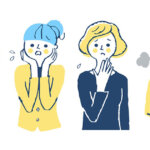






Stop Asking “Where Were the Parents?” When Something Goes Wrong
When baby Jessica fell down a well at 18 months of age in 1987, a nation banded together to help support the understandably frantic parents. I was 5 years old at the time, but I still remember the news coverage. When they recovered her, our family was ecstatic.
When I think of this story today, however, I can’t help but think of how society’s attitudes have changed toward parenting. As someone who has been personally attacked over articles I’ve written about my parenting choices, I feel fairly certain things have changed. If the baby Jessica scenario were to happen today, there would be an immediate collective outcry of, “Where were the parents?”
Blaming parents shouldn’t be our first step.
When did it become socially acceptable to blame any accident that befalls a child on parental negligence? Have we completely given up on giving parents the benefit of the doubt? Society today demands a kind of hypervigilance with parenting. It feels like it’s deemed unacceptable for children to be unsupervised, even for a moment. Whenever I see a story in the media about a child getting hurt, I scan the comments. I’m looking for how long it takes for someone to blame the parents.
It didn’t take very long at all for people to attack the mother of a toddler who fell into a gorilla enclosure at the Cincinnati Zoo in 2016 in what was, essentially, a freak accident. The boy survived but sustained serious injuries, and the mother was blamed by many for her child’s injuries—and for the death of the gorilla, as this article, written by Let Grow president, Lenore Skenazy, explains. Turns out the mother looked away for a brief moment while taking a picture. It’s something that can happen to any parent. This begs the question: Is it fair to expect parents to prevent every accident or injury of their children?
Kids are going to get hurt sometimes.
I have three sons. They are active, energetic, and very physical. Yes, sometimes they get hurt. My youngest, in particular, we affectionately refer to as our “wild man.” He almost never thinks before he acts. In one incident after witnessing some teenagers backflipping into a pool, he decided, at 4 years old, that he would launch himself into the pool in the same way. I barely managed to grab a hold of him before his head hit the side of the pool.
There have been many times, however, when he has gotten hurt. I wasn’t able to prevent it. I wasn’t even in the same room, gasp! These are instances that he learned from by experiencing natural consequences. Of course I don’t want my children to experience pain, and I do my best to teach them about staying safe. But pain is part of the human experience. This doesn’t and shouldn’t equate to “bad” parenting.
Why is parent-shaming so prevalent?
According to a nationwide poll of mothers of young children, 61% say they have been criticized for their parenting choices. More than 50% of mothers polled believe that they get “too much blame, and not enough credit for their children’s behavior.” The internet, social media in particular, is a hotbed for blaming and shaming commentary. Most people would never say what they say on social directly to someone’s face.
An article from CBS News equates the compulsion many feel to blame parents when there is an accident on a lack of empathy. Empathy is the ability to understand and relate to the feelings of another, but according to the article “empathy is tangled with moral judgment even at the level of brain anatomy.” I think that it helps people to feel safer, when something bad happens, to place judgement on the parents involved as a way to assure themselves that such a misfortune could never happen to them.
The article also mentions a turn toward individualism over the last century as a contributing factor in the shaming of parents. Parents today no longer have a “village” to help raise a child. Rather, we live during a time where people mock everything. Helicopter parenting has its critics—“Look at Karen, hovering over her child again.” The other side has critics, too—“Where were the parents? They should be watching that child every second!” Accidents are no longer situational, but instead are considered the result of a negligent individual.
We should replace “Where were the parents?” with “That could have been me.”
Parents love their children. We never want to see them hurt, and we do our best to teach them about the world and how to be safe. Accidents happen, however, and are part of being human. The only thing we can really control is our reaction. We can decide how we respond to a child who is hurt, whether we sympathize with them or blame them. We can also decide how we respond to the parents of a child involved in an accident, whether we blame and shame them or try to imagine being in their shoes.
Obviously, true neglect does happen, and you should report it to the proper authorities. Our first instinct when we come across a news headline, however, shouldn’t be to place blame and ask, “Where were the parents?” before we even read the story.



Comments are closed for this article.